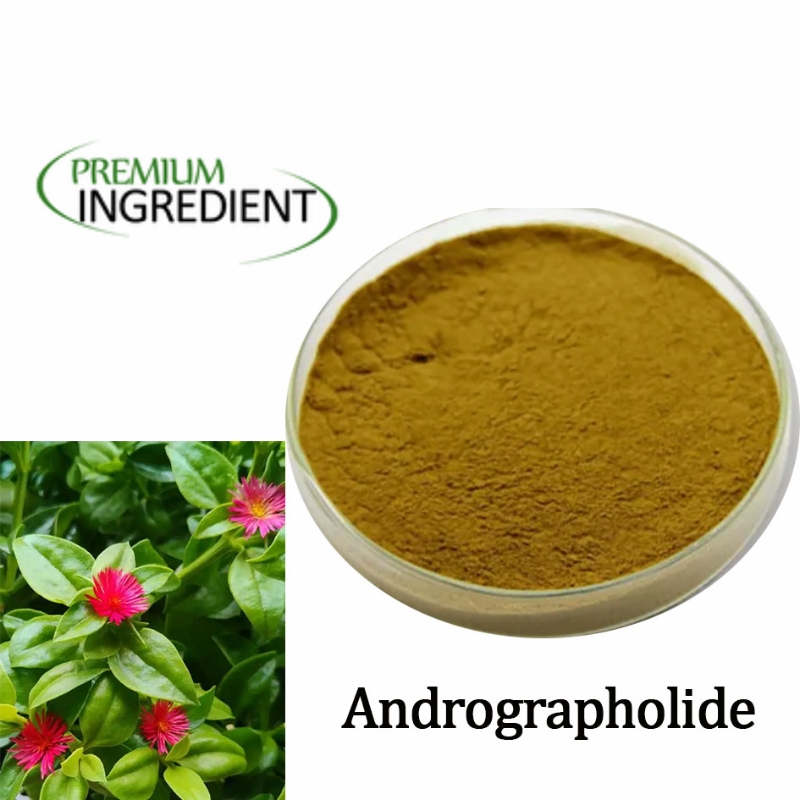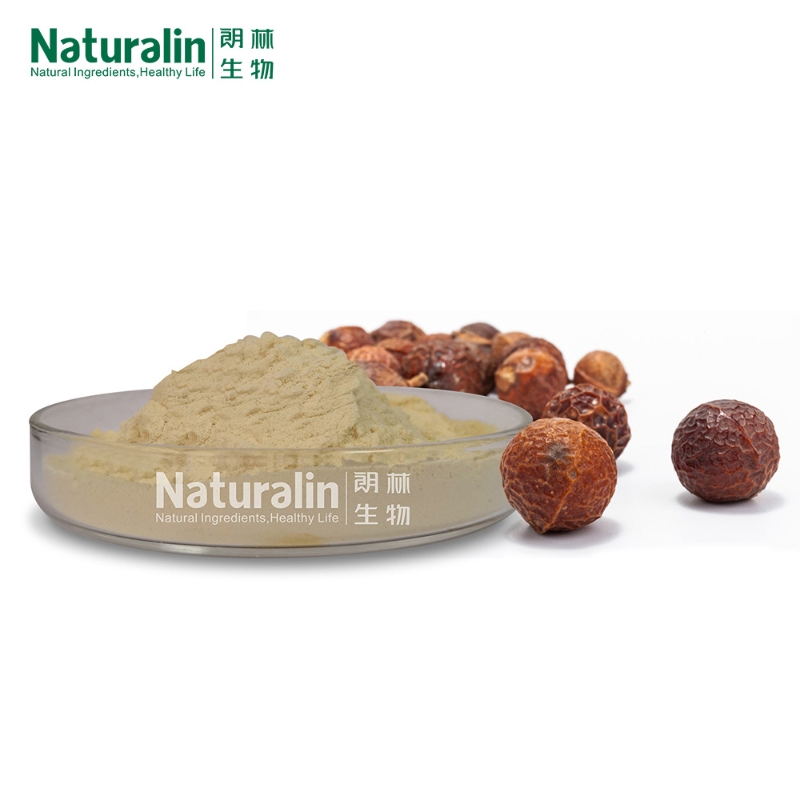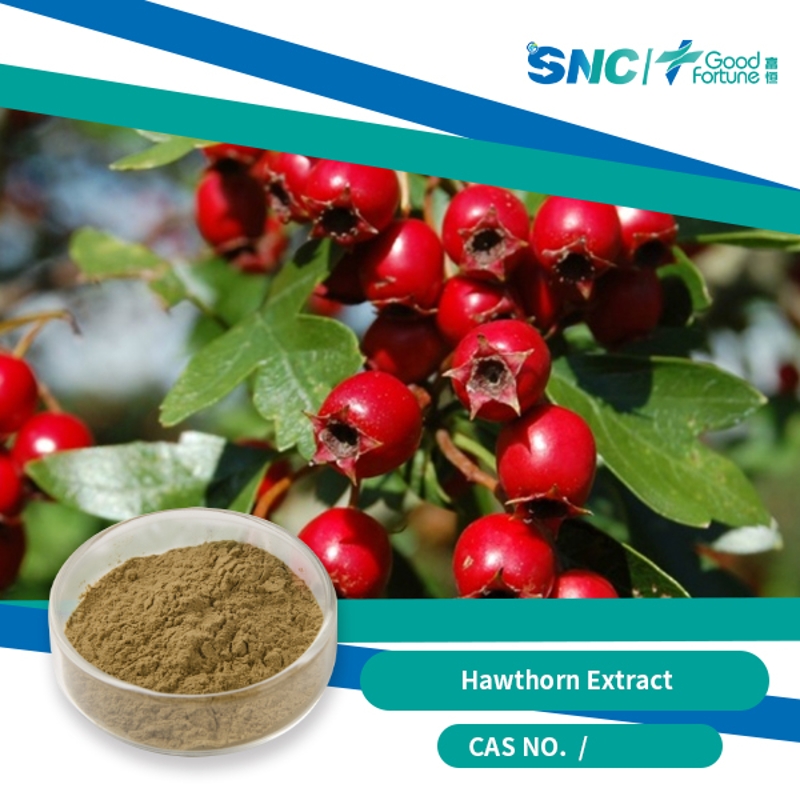Looking at the internationalization path of traditional Chinese medicine from the American market
-
Last Update: 2013-01-14
-
Source: Internet
-
Author: User
Search more information of high quality chemicals, good prices and reliable suppliers, visit
www.echemi.com
Business news on January 14 in the global scope, more and more emerging markets began to accept and use traditional Chinese medicine, which means that the influence of traditional Chinese medicine in China is further expanding However, the steady development of China's international trade in traditional Chinese medicine is still inseparable from the promotion of traditional markets such as Europe, North America and Asia Among them, the stable growth of the world's largest pharmaceutical consumer market, the U.S market, has contributed a lot The United States is the world's largest consumer market of medical and health products, and also the world's largest demand country for raw materials products The huge industrial demand requires us enterprises to continuously import raw materials from all over the world, including plant-based raw materials For a long time, the United States has been one of the main target markets for the export of Chinese traditional medicine products According to the statistics of China's customs, from 2001 to 2011, China's import and export trade of traditional Chinese medicine products to the United States increased steadily, with the import and export volume increasing from $100 million in 2001 to $330 million in 2011 Among them, the export volume of Chinese traditional medicine products to the United States has increased from US $70 million in 2001 to US $270 million in 2011, with an average annual growth rate of 14.2%; while the import volume has increased from US $30 million to US $60 million, with an average annual growth rate of only 7.4% The export growth rate is significantly higher than the import In terms of export volume alone, the United States ranked third in the export market of Chinese traditional medicine products in 2001-2011 Although the emergence of the U.S financial crisis in 2008 led to a certain impact on the export of Chinese traditional medicine products to the U.S., the growth slowed down, but from the data of 2011, the import and export trade has shown a strong momentum of recovery growth From the perspective of product structure, China's exports of traditional Chinese medicine products to the United States are mainly plant extracts, health care products, traditional Chinese medicine and decoction pieces and other raw materials, with the export volume accounting for about 95%; while the proportion of traditional Chinese medicine products is relatively small, about 5-6% Among them, plant extract is the main product category of China's export to the United States, which accounts for more than 60% of the total export volume, and the United States has been ranked first in the export market of China's extract products Take the data of 2011 as an example, the largest product category of Chinese medicine export to the United States is extract, with the export volume of 180 million US dollars, accounting for 65.6%; the export volume of health care products is 56.64 million US dollars, accounting for 20.7%, ranking the second; the export volume of Chinese medicine and decoction pieces is 22.152 million US dollars, accounting for 8.1%, ranking the third; the export volume of Chinese patent medicine is 15.312 million US dollars, accounting for only 5.6% The unique supplement management system from the perspective of product application, Chinese traditional medicine products exported to the United States are mainly used as raw materials for dietary supplements, general food and pharmaceutical products Some Chinese patent medicines can be used as dietary supplements, but no preparation varieties have been approved to be used as drugs If we want to understand this situation, we need to start with the unique management system of herbal products in the United States In the United States, the use history of plant products can be pushed forward to the era of Native Americans (Indians) In the first half of the 19th century, the use of botanical drugs was still quite common In 1820, almost 66% of the medical treatment methods listed in the USP came from plants However, by the middle of the 19th century, with the establishment of an American Medical Association dedicated to chemotherapy, the chemical synthetic medicine industry began to grow and grow, and gradually became the leading medicine in the past few decades, while the plant products were gradually regarded as the products of outdated and outdated by the American people If plant products are to be used as drugs, they need to be declared in accordance with the registration requirements of chemical drugs, which further accelerates the disappearance of plant products from the market Until 1994, in order to strengthen the management of various health care products and plant products such as vitamins on the market, the U.S government passed the dietary supplement health and Education Act (DSHEA), which prevented the FDA from regulating dietary supplements as "food additives" or "drugs", and clarified the unclear nature of the previous concept of dietary supplements This law also explicitly includes non pharmaceutical plant products into the scope of dietary supplement management In general, FDA will not prevent the product from being listed as a "dietary supplement" as long as it meets the safety issues such as non-toxic, health claims and general label instructions specified by FDA, and does not indicate that the product has the function of preventing or treating diseases From the perspective of management, the fundamental difference between FDA's management of dietary supplements and "food additives" and "drugs" lies in that the latter two must prove the safety of products to FDA, and they can be listed only after FDA's approval Dietary supplements can be listed first, and FDA is required to prove that the product is unsafe and then ordered to withdraw from the market It should be noted that, although DSHEA does not require manufacturers of dietary supplements to register their information with the FDA, according to the public health safety and bioterrorism prevention and Response Act adopted by the U.S Congress in 2002, all manufacturers of dietary supplements must register their information with the FDA before starting production and sales But in any case, unlike many other countries' approval systems, the U.S filing system gives enterprises more freedom, which is also the fundamental reason why the U.S dietary supplement market is booming Due to the high threshold of drug access in the United States, Chinese traditional medicine products exported to the United States for many years are basically circulating in the field of dietary supplements market In 2007, FDA issued the final regulation of cGMP for dietary supplements, which requires us dietary supplement manufacturers to comply with cGMP before June 2010 This regulation promotes the market of supplements in the United States, and also has a certain impact on the raw materials of supplements exported to the United States, which is mainly reflected in the product quality inspection requirements Therefore, Chinese traditional medicine export enterprises should pay attention to it and make corresponding adjustment The booming herbal supplement industry since DSHEA was issued, the American dietary supplement manufacturing industry has been booming, and consumers have more choices At the same time, more and more Americans are aware of the importance of health care because of the increasing cost of medical care and the increasing aging of the population, Its enthusiasm for the use of health products is growing rapidly, which to a certain extent promotes the development of American dietary supplement industry, but also brings more opportunities for the development of Chinese traditional medicine industry In the U.S dietary supplement market, herbal dietary supplements account for a large proportion, accounting for about 20% of the market share of the U.S dietary supplements It is an important market for the export of traditional Chinese medicine products in China, and has great significance in promoting the export trade of traditional Chinese medicine products in China In terms of the best-selling varieties, the top three best-selling plant dietary supplement products in the U.S market in 2011 are still Blueberry (Cranberry) extract, saw leaf palm and soybean extract In addition, there are supplements (such as Ginkgo biloba extract, resveratrol, green tea extract) to prevent or treat cardiovascular diseases And garlic oil), anti-aging and immunity enhancing supplements (such as ginseng, ginger oil, Echinacea), female supplements (such as black cohosh, elderberry, aloe and soybean isoflavones), and sexual health food (such as epimedium, yohimbine), are also the best-selling herbal supplement products in the U.S market in recent two years In addition, from the perspective of prescription ingredients of dietary supplements, the sales volume of single herbal dietary supplements in the United States increased significantly from 2005 to 2011, with the sales volume reaching US $3.497 billion in 2011; while the sales volume of compound herbal dietary supplements changed little, with the sales volume reaching US $1.779 billion in 2011 Sales of single herbal dietary supplements have doubled to those of compound products, which is related to the preference of the American people to use single herbal dietary supplements From the above data, it is not difficult to see that the market of herbal dietary supplements in the United States is large, and the plant extract products in China have become an important source of raw materials in the American supplement market In some varieties, such as green tea extract, resveratrol, Ginkgo biloba extract, aloe and other products, China has occupied the advantages of resources, costs and so on Although according to the relevant laws and regulations of the United States, dietary supplements cannot be reimbursed in the national medical insurance of the United States, that is to say, consumers must buy these dietary supplements at their own expense However, due to the low market access threshold and large market space of health products in the United States, the United States is still an ideal export target market for Chinese traditional medicine products in the long run, and its market is expected Capacity will continue to grow steadily At the same time, because of the history of using as dietary supplement, it can be used as an important reference when applying for approval of botanical drugs, so many traditional Chinese medicine preparation enterprises can also choose to market their products as dietary supplement in the United States It should be noted that in recent years, the American people have more rational choice of herbal dietary supplements Therefore, enterprises should actively understand the market demand and have a specific target before they can make great achievements in the American market The registration of botanical drugs is not a dream From the perspective of the U.S market, for China's raw material enterprises, the sale of traditional Chinese medicine products in the form of dietary supplement raw materials in the U.S can not only obtain considerable profits, but also have no complicated procedures such as registration and approval from the operational level Therefore, at present, this is a better choice However, for pharmaceutical enterprises, it is not a long-term plan to sell Chinese patent medicine products approved by Chinese pharmaceutical administration departments in the name of "dietary supplements" in the United States for a long time Most of the traditional Chinese medicine products exported from China to the United States are used as raw materials for dietary supplements, and the application channels of the products are relatively simple Therefore, the export volume of Chinese herbal medicine to the United States can be compared with the sales volume of American herbal dietary supplements to reflect the contribution of Chinese export products in the American dietary supplement industry Through data analysis, it is found that from 2001 to 2011, the proportion of Chinese herbal medicine products exported to the United States has increased from 1.7% in 2001 to 5.2% in 2011 However, it is not difficult to see from the data that Chinese enterprises only assume the role of raw material suppliers in the industrial chain, and more added value brought by dietary supplement products are enjoyed by American pharmaceutical enterprises Therefore, to speed up the pace of entering the field of preparations will be the inevitable choice for Chinese traditional medicine enterprises to seek long-term development in the United States With the increasingly prominent clinical therapeutic effect of botanical or natural drugs such as traditional Chinese medicine, many countries around the world have carried out the legislation of botanical drugs to open up a new channel for the research and development and marketing of botanical drugs In June 2004, the FDA of the United States officially released the guidance document "guidelines for botanical products" (hereinafter referred to as "guidelines"), although the guidelines do not specifically stipulate or relax the specific requirements for the approval of botanical products, it has opened a promising door for the entry of botanical drugs into the U.S medical health system In fact, as early as the FDA issued the guide, Chinese traditional medicine enterprises have begun to conduct beneficial exploration of product registration of traditional Chinese medicine as a "drug" in the United States Due to the strict control of drug approval policy and cautious approval by FDA in the United States, China's traditional Chinese medicine in the United States
This article is an English version of an article which is originally in the Chinese language on echemi.com and is provided for information purposes only.
This website makes no representation or warranty of any kind, either expressed or implied, as to the accuracy, completeness ownership or reliability of
the article or any translations thereof. If you have any concerns or complaints relating to the article, please send an email, providing a detailed
description of the concern or complaint, to
service@echemi.com. A staff member will contact you within 5 working days. Once verified, infringing content
will be removed immediately.







